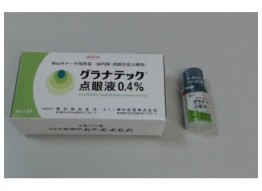Azilect Tablets 0.5 mg for Parkinson's disease (rasagiline)
What are Azilect Tablets 0.5 mg for Parkinson's disease (rasagiline)?
Azilect tablets, containing the active ingredient rasagiline mesylate, are utilized in the management of Parkinson's disease, a neurodegenerative disorder characterized by the progressive loss of dopaminergic neurons in the brain. The mechanism of action of Azilect revolves around its role as a selective and irreversible inhibitor of monoamine oxidase-B (MAO-B), an enzyme responsible for the metabolism of dopamine in the brain. By inhibiting MAO-B, Azilect effectively increases the levels of dopamine available in the brain, thereby improving motor function and alleviating some of the symptoms associated with Parkinson's disease.
The therapeutic effectiveness of Azilect in Parkinson's disease has been demonstrated in clinical trials. When used as monotherapy in the early stages of the disease or as adjunct therapy in more advanced stages alongside levodopa, Azilect has shown the ability to reduce motor symptoms, such as tremors, bradykinesia, and rigidity. Additionally, some studies have suggested potential benefits in terms of reducing motor fluctuations and dyskinesias associated with long-term levodopa use.
Active principles: rasagiline mesilate
Amount: 100 tablets
Maker: Takeda Pharmaceutical Co., Ltd., Tokyo, Japan
Indications: treatment of Parkinson's disease
How to take
Adults should take 2 tablets (1 mg of rasagiline) at a time, once a day.
Contraindications: do not use for patients with liver dysfunction or low body weight. Do not use for pregnant or breastfeeding women.
Important information
In case uncontrollable behavioral symptoms, such as repetitive gambling, repetitive excessive unplanned shopping, a pathological increase in sexual desire or appetite, patient should consult with their doctor. Patient's family should be informed about the possibility of such symptoms.
The patient should refrain from the following activities during the course of treatment:
- driving a car, operating machinery or working at heights,
- taking any food or supplement containing St. John's wort,
- smoking,
- taking foods or beverages rich in tyramine content such as cheese, beer and red wine.
If an allergic reaction occurs, patient needs to stop using the medicine and consult with their doctor. If patient is taking any other medication or treatment, they should consult with their doctor in advance.




